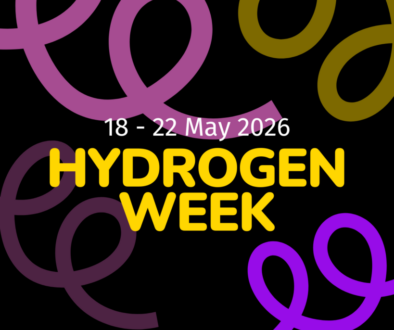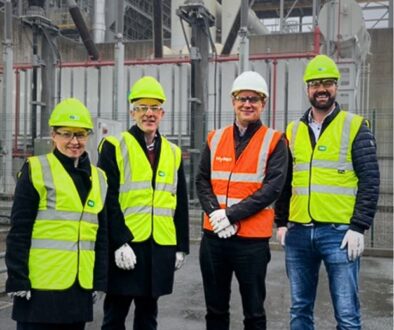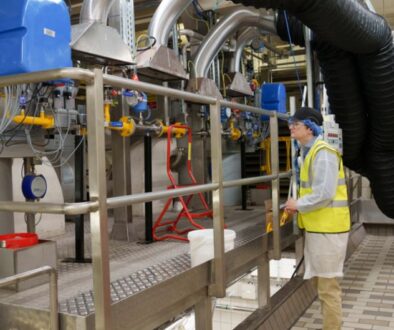Bridging the skills gap to deliver a hydrogen economy
United Living and Riverside College partnership. Bridging the skills gap to deliver a hydrogen economy
Building and operating new energy systems, including hydrogen, whilst maintaining existing infrastructure in sectors already experiencing an ageing workforce will require a major re-industrialisation of the labour market. A new generation of skilled engineers is needed to enable the transition to a green economy.
In a recent report, PricewaterhouseCoopers (PwC) highlights that around 270,000 workers in the oil and gas sector can transfer their skills towards delivering net zero. However, around 20% are expected to retire by 2030, leaving only 216,000 transferable workers to help plug the 400,000 jobs needed to build the new energy workforce across areas such as hydrogen and renewables.
Specialist pipe welders and maintenance engineering technicians are in critically short supply, which poses a significant challenge for the energy transition. Welding, often overlooked but indispensable, forms the backbone of various industries, including oil and gas. As the demand for precision engineering and metal fabrication rises, so does the need for skilled pipe welders.
To tackle this challenge, collaboration is critical – between educational institutions, industry stakeholders, and the government. Significant investment is needed in comprehensive training programmes, apprenticeships, and retraining initiatives to cultivate a new generation of skilled pipe welders as part of a broader new energy workforce.
United Living and Riverside College partnership
A member of the North West Hydrogen Alliance (NWHA), United Living Infrastructure Services (ULIS) is investing heavily in the UK’s energy transition, creating pathways into careers in hydrogen and carbon capture, utilisation and storage (CCUS).
To deliver a fresh pipeline of skilled welders to support the present and future needs of the energy network, ULIS has worked closely with Riverside College, a regional centre of excellence for future energy transmission and distribution, to design and develop a new trailblazing apprenticeship scheme and bespoke Hydrogen Training Centre, designed to equip the future workforce with the skills and knowledge required for the hydrogen network.
Accredited by The Welding Institute (TWI) and the Institution of Gas Engineers & Managers (IGEM), the apprenticeship scheme utilises a blended learning approach, with students gaining hands-on experience of a hydrogen pipework system which is based on-site, skills which will play a valuable role in delivering low carbon heating and power for buildings and industrial processes.
The courses which are delivered at the Hydrogen Training Centre, the first of its kind in the country, also explore what high-intensity up-skilling and retraining opportunities could be available to students to allow skilled adults to move from one green energy job sector to another, which will be essential if the UK is to achieve Net Zero carbon emissions by 2050.
This investment in people will also enable our know-how and services to be developed and exported worldwide, helping other countries create energy systems of the future in the fight against climate change whilst providing jobs and rewarding career opportunities for generations to come.
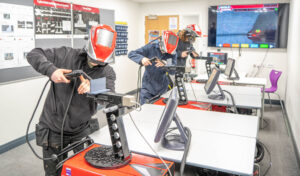
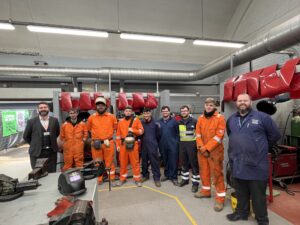
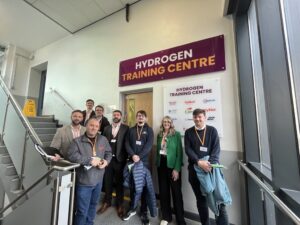
Investing in the future
ULIS is not only investing in people and skills; it recently acquired premises at Lingley Mere near Warrington, where it is establishing a new head office and northern hub. The new office facility will accommodate over 400 United Living employees. ULIS’s existing premises in Golborne, will be retained and will continue to house operational and engineering teams and their associated pipeline fabrication facilities.
Being at the heart of the HyNet cluster, ULIS is primed and ready to deliver the UK’s first hydrogen economy and make a real contribution to the nation’s net-zero targets, supporting the UK’s clean growth strategy.
Conor Bray, Managing Director, United Living Infrastructure Services, commented,
“As the UK transitions towards a green economy, hydrogen and CCUS will play a crucial role, serving as a vital facilitator in the journey towards achieving net zero emissions by 2050, and at United Living, we are committed to facilitating that change.
“As a trusted delivery partner in the energy sector, we’re working hard to bridge the skills gap to ensure the skills and knowledge are acquired and rapidly developed to re-imagine, re-configure and operate the new clean energy system.
“Our industry-leading partnership with Riverside College and investment in the north is an important part of this process, creating the skilled workforce necessary to transition to a clean, green, energy-efficient future”.
Thalia Bell, Deputy Principal, Riverside College, added:
“Riverside College and United Living have been collaborating together for over 5 years to ensure that we meet the significant opportunity that renewable energy will mean for the North West. Thanks to the support from United Living, Riverside College has embarked on a transformative journey into the world of hydrogen technology.
“This journey has led to the establishment of a bespoke curriculum and the Hydrogen Training Centre, allowing for the training and upskilling of local people to meet the extensive needs of this industry. Their expertise and support have been instrumental in influencing the design and detail of the curriculum and facilities to meet the demands.
“By co-developing these practical qualifications with employers, Riverside College ensures that its students are well-equipped to make meaningful contributions to industry from day one. This hands-on approach to education and training ensures that students graduate with practical experience and a deep understanding of the challenges and opportunities in the hydrogen sector.”
Find out more about United Living and Riverside College.
